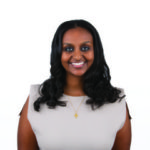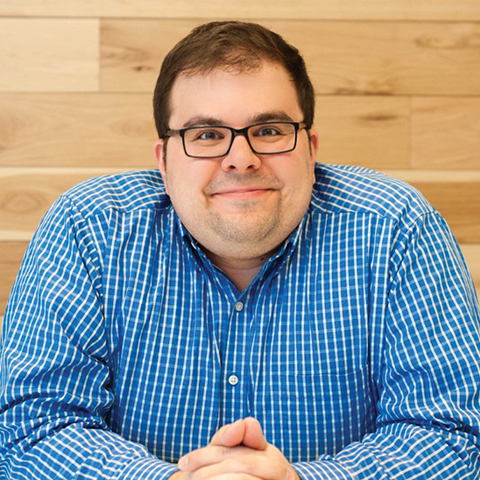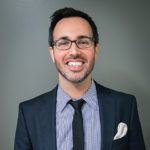How did you end up working in the meetings industry?
I have a Ph.D. in elementary particle physics from a long time ago. I got it when I was 25 in England. The story really starts with curiosity, with me as a young nerd who was just curious about how the world worked, and I thought I wanted to understand science and so on. So, I thought, physics, that’s the way to go, and eventually I became a physicist.
Then I came to Vermont in ‘75 for 24 hours to see some friends. I was living perfectly happily in England, but I turned to my wife-to-be and said, “I think I’d like to live here.” I had to figure out how to make a living in this tiny little town in beautiful Vermont. So I got a postdoc position at Tufts University in Boston. That was the nearest job I was offered to Vermont.
Some friends of mine were starting a solar-energy business at that time. This was the late-’70s, and solar was hot. So I joined them, and we started this solar-energy business and we manufactured solar hot-water systems and sold them around New England, and we did very well. During that time, I wanted to organize conferences about this field. I ended up organizing some of the earliest solar-energy conferences in the United States. My perspective, even probably when I was a grad student, was always, how can I learn about stuff? How can I learn from other people, actually bring people together, and learn from each other and so on?
I had been an academic and I had gone to tons of academic conferences, and I hated them. I was a lowly grad student at the time, but you’d go into this room and there would be hundreds of physicists there. You wouldn’t know anybody, because you were new in the field, and you’re supposed to somehow get to know people at a social. And the conferences themselves were just lectures — you have this Nobel Prize-winning physicist that talks for 55 minutes, and then there would be five minutes for Q&A at the end. And the Q&Awasnot about learning stuff. It was about how smart you could show yourself to be to all the other physicists. It was about status. I just really hated it. I didn’t analyze it any more, but I always knew that I wanted to do something different.
So I organized some of the earlier solar-energy conferences in the United States. Then when I left that I went back to academia for a while. I taught computer science at this tiny liberal-arts college in my town, and very soon after I did that the personal computer came in, and suddenly every college could use computers to automate the administration of their systems. The school hired me as a consultant and said, can you use these things? I did that for a while, and then I decided I would organize a conference for people like me on automating administrative technology at small schools.
This was nearly 25 years ago. We didn’t know who to invite; there weren’t any experts. We realized that collectively, the people who came to the conference were the experts. We’d all been trying to figure out how to do this stuff, and collectively we knew more than anybody else around. We kind of designed the conference on the spot. It’s like, well, here we are, what are we interested in? What do we want to learn? What are our problems, and who here has done interesting stuff? And that was the start of my creating these participant-driven events.
I ran those events, and they were popular. People really liked them and started asking me in my spare time [to run conferences for them]. About 15 years after that first conference, about seven years ago, I thought, I want to write a book about this. I want to get this method out into the world. By this time, I was an independent IT consultant. I had given up teaching, because it was like I had two full-time jobs. It was crazy. I was a very successful independent IT consultant for many years, and running these conferences in my spare time. I wrote [Conferences That Work], and when that book came out in 2009,I didn’t even know what PCMA or MPI stood for. I had no knowledge of the traditional meetings industry at all.
A month or two after the book came out, I went to what turned out to be the first EventCamp in New York City. I met all these people who are fairly well-known in the meetings industry. I didn’t know anything about them. I said, oh, I wrote this book, and people were interested, and that’s where I started — five years ago now. That’s where I started to discover that there was this huge meetings industry out there. In many places they were still doing things the way that I didn’t like very much, but there were what I would call progressive event professionals who were really interested in these alternative methods.
Your book is called Conferences That Work, but what are some characteristics of conferences that don’t work?
Well, there are so many things, where to start. I think the learning model that most traditional conferences use of having experts talking at people — we’ve known for a long time, it’s a terrible way for people to learn. It’s not like lecturing by itself is inherently bad. At any moment in time, if you have a group of people, one person is talking and the other people are listening. The issue is the timeframe. If you have someone talking for an hour and everyone listening, we know that people tune out after 10, 20 minutes. That kind of stuff is not going to work very well, so you need interactive stuff if you’re going to learn. We also know that people learn much better when they are forced to actually participate in their learning, rather than just sit and listen passively, so the whole learning model in traditional events is really bad.
These days, we have all these amazing ways to learn broadcast content. We don’t need to go physically to hear an amazing lecture anymore. We can just watch it on YouTube or on the Internet. And so, if you’re going to spend all this time and money sending people to face-to-face events and they’re just going to sit and listen to someone recap their YouTube video, that’s not a really good use of people’s time.
The other piece associated with that is, the kinds of knowledge people need to do their jobs these days has changed radically in the last 30 years. I mean, 30 to 40 years ago, most of what you needed to know to do your job you learned in the classroom. In the late-1990s, they did [a study of] some large firms, and they looked at how the people in those firms, these large Fortune 500 companies, learned what they needed to know. They discovered that most of what people needed to know they learned from their peers, or they learned themselves, through self-education.
My point of view is, we need to have conferences that match that. Conferences that still use this old model of filling that valuable face-to-face time with experts is not matching what the realities are these days. When you have a room full of adult professionals, those adult professionals know far more collectively than any one person or two people who are up on the stage for an hour or so. We need to have conferences that tap that knowledge and also have methodologies that allow us to meet the people in that room, those 10 people in that room of 200 people who, wow, we would really like to get to know, because they know some interesting stuff, and they really want to get to know us, because we’ve done something interesting.
What do you like best about your job?
I love facilitating connections between people. That’s really what I see myself as doing. I’ve met a lot of people in the meetings industry, and there are some people who are in it because it’s a job, but most of the people who found themselves in it are in it because they really enjoy bringing people together successfully, and seeing the interaction and enjoyment and learning and other things that happen as a result.
What advice would you give somebody who is just starting out in the meetings industry today?
You know, for 10 years I taught computer science at [Marlboro College], and [students] would get to graduation and say, what do I do? How do I get a job? What should I do next? And my advice is always the same: Figure out what it is you want to do and then go do it, and that is an integrative process.
I hope that my bizarre career path just shows the kinds of things that are possible. I’ve met so many people who have gotten into the meetings industry from so many different areas. And I think that core piece that I talked about earlier, about loving bringing people together, is the most important thing. If you have that, then you can employ your skills, whatever they are — technical skills, people skills, and so on — in whatever way is appropriate.



